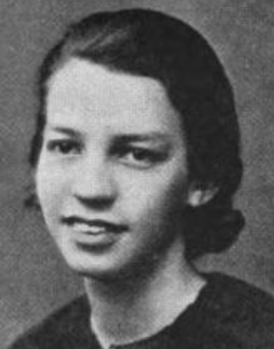Alice Jackson Stuart facts for kids
Quick facts for kids
Alice Jackson Stuart
|
|
|---|---|

Alice Jackson (later Stuart), from a 1936 magazine
|
|
| Born | June 2, 1913 Richmond, Virginia, U.S.
|
| Died | June 13, 2001 (aged 88) |
| Education | Virginia Union University; Columbia University |
| Occupation | Educator |
| Known for | First Black woman to apply for graduate school admission at the University of Virginia |
Alice Carlotta Jackson Stuart (born June 2, 1913 – died June 13, 2001) was an American teacher. She made history as the first African-American woman to apply for advanced studies at the University of Virginia. Her application was turned down for "good and sufficient reasons." Later, she earned her Master of Arts degree from Columbia University in 1937.
Contents
Alice Jackson Stuart's Life Story
Alice Jackson was born in Richmond, Virginia. Her parents were Dr. James Jackson and Clara Kersey. She was the oldest of three children who survived. Alice's parents had gone to college, so they could afford to send her to college too.
She attended Virginia Union University. There, she earned a Bachelor of Arts degree in English. While studying, she was also part of the Delta Sigma Theta sorority chapter at Virginia State College.
Applying to the University of Virginia
In August 1935, Alice Stuart became the first African-American woman to apply for graduate studies at the University of Virginia (UVa). She was not accepted. This was because of the Jim Crow rules for education at that time. These laws kept Black and white people separate. The school board did not explain the "good and sufficient reasons" for denying her entry.
After this, she went to Columbia University. She received money for her studies from the Dovell Act. In 1937, she graduated from Columbia University with a Master of Arts degree in English. Her son, Julian Towns Houston, said that his mother "loved teaching" and "loved her students."
Her Career as an Educator
After graduating, Alice Stuart worked at several schools. She taught at Bethune-Cookman College and Howard College. She also taught at many high schools.
The Ford Foundation gave her a special award called a fellowship. This allowed her to travel around the country. Alice Stuart passed away at age 88 on June 13, 2001. This was just one week after her grandson graduated from Harvard University.
How Alice Jackson Stuart Made a Difference
When the University of Virginia rejected Alice Stuart's application, it became a big public issue. Many African-American groups and student organizations in Virginia paid attention. Her case even led to important changes in how African-American students were treated in Virginia's education system.
Seeking Help from the NAACP
After being turned down by the University of Virginia, Alice Stuart sought advice from the NAACP. This group works to make sure all people have equal rights. The NAACP had even threatened to take the University of Virginia to court. They wanted the university to admit a Black graduate student.
Student Protests and Support
The National Student League (NSL) also got involved. They wrote a public letter to the University of Virginia's Board of Visitors and President John Newcomb. They said the university's decision was wrong. The students protested because it meant "continuing educational inequality." The NSL even held a meeting for students to talk about the issue. This put pressure on the university. The president received many similar letters from other NSL groups at different universities.
Changes in Virginia's Education
Even though racial segregation was common in the 1930s, Alice Stuart's case pushed for changes in Virginia. The state started to provide separate, but supposedly equal, higher education for African-American citizens.
In December 1935, the Virginia State Board of Education announced a new graduate department. This department was for African Americans at Virginia State University in Petersburg. It was the first graduate school for African Americans in Virginia. The State Board said that "such opportunities should be provided for the Negros."
Another change happened in February 1936. The Virginia General Assembly passed House Bill 470, known as the Dovell Act. This law promised to pay for qualified Black students to attend schools outside the state. It covered their tuition and travel costs if a similar course of study was not available in Virginia. This act helped hundreds of African-American students over the next 20 to 30 years. Because of this act, Gregory Swanson later became the first African-American student at the University of Virginia Law School in 1950.
Alice Jackson Stuart's Lasting Impact
Just a few months after Alice Jackson was rejected by UVa, the Virginia State Board of Education created a graduate school for African Americans. This was at Virginia State University in Petersburg in 1935. The next year, the Virginia General Assembly passed the Dovell Act. This law helped pay for Black students' tuition and travel to out-of-state schools.
In the 1980s, students at the University of Virginia honored her. After she passed away in 2001, the Virginia Senate approved a special resolution (Joint Resolution No. 40) to honor Alice Jackson.
Alice Jackson's actions were very important in the long process of ending segregation at the University of Virginia. However, the first African-American student was not accepted at the graduate level until Gregory Swanson in 1950. After that, more African-American students were slowly accepted into both graduate and undergraduate programs.
In 2012, Alice Jackson was honored after her death. The Library of Virginia named her one of "Virginia Women in History" for her life's work.
 | Frances Mary Albrier |
 | Whitney Young |
 | Muhammad Ali |

